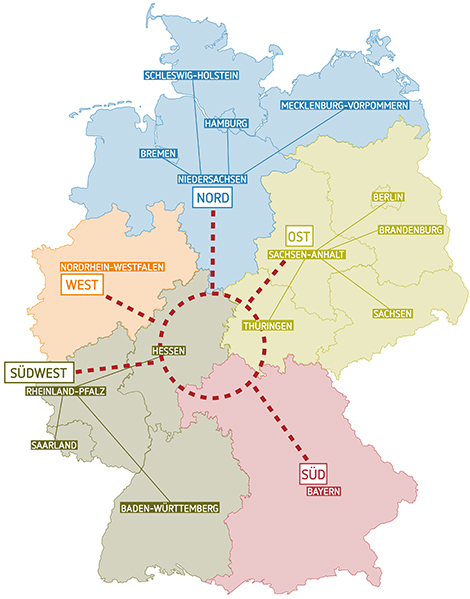Strategic patient transfer
Date: 02/06/2025
Capacity in inpatient care (e.g., for intensive care patients) is limited and cannot be increased arbitrarily due to the specialized expertise and equipment required. This can lead to overburdened hospitals or, depending on patient volume, entire regions or federal states. To ensure that patients continue to receive adequate care even in overload situations, strategic patient transfers are conducted both nationwide and from abroad, following approaches such as the Kleeblatt concept.
The COVRIIN+ expert group advises federal states and hospitals on questions regarding the strategic transfer of different patient groups within Germany. As a first step, COVRIIN+ assesses whether patients are stable enough for transport based on available medical information. For patients being transferred strategically from abroad to Germany, an initial evaluation determines whether limited capacities in Germany are required. This is followed by a clinical assessment, determination of the required level of care, and, finally, the selection of the recommended mode of transport.
The Kleeblatt concept
For strategic distribution, the federal states have been divided into five so-called Kleeblätter (clovers), each coordinated by a central point of contact—referred to as a Single Point of Contact (SPoC):
- South: Bavaria
- Southwest: Baden-Württemberg, Saarland, Rhineland-Palatinate, and Hesse
- West: North Rhine-Westphalia
- East: Thuringia, Saxony, Saxony-Anhalt, Brandenburg, and Berlin
- North: Lower Saxony, Bremen, Hamburg, Schleswig-Holstein, and Mecklenburg-Western Pomerania
The SPoCs maintain regular communication with their respective federal states and coordinate among themselves. When an overload situation is imminent in one or more Kleeblatt regions, the Kleeblatt system can be activated.

Patient transfers from Ukraine
Patient transfers to Germany in response to international aid requests can also contribute to local or regional overload situations, as seen in the context of the war in Ukraine. The expert group performs an early review of available information and evaluates cases based on required levels of care, medical specialties, and necessary transport modalities.
To ensure the highest level of expertise in handling these tasks, the COVRIIN expert group was expanded to COVRIIN+, incorporating leading members of the German Society for Trauma Surgery (DGU), its associated trauma networks, and experts from the German Interdisciplinary Association for Intensive and Emergency Medicine (DIVI) in the field of pediatric intensive care.
